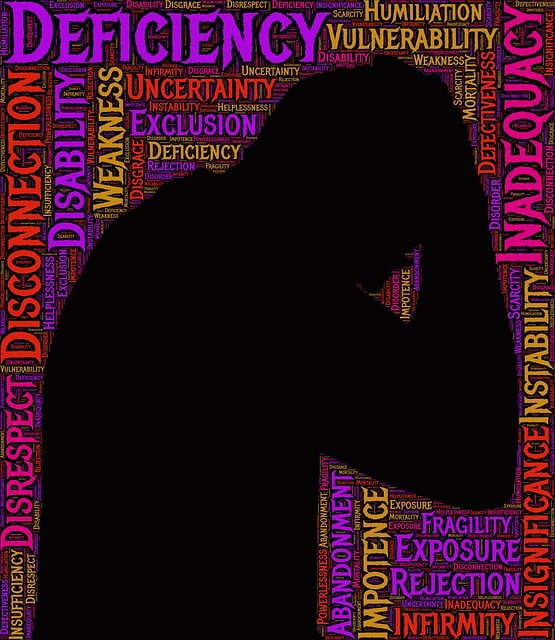Community outreach programs, like Arvada Mental Health Evaluations and Therapy, are essential for enhancing mental health services in Arvada, where stigma is a significant barrier. These programs aim to reduce stigma, promote early intervention, and improve overall mental wellbeing by addressing unique needs through strategic partnerships, evidence-based practices, and holistic approaches. Key components include cultural sensitivity, safe spaces at local centers, peer support, staff training, regular monitoring using KPIs, and collaboration between organizations. By normalizing mental health conversations and integrating services, these initiatives build community resilience and ensure better access to Arvada Mental Health Evaluations and Therapy.
In the vibrant community of Arvada, Colorado, access to mental health services is paramount. This article explores the implementation of successful community outreach programs aimed at enhancing mental well-being. We delve into the context of Arvada’s mental health landscape, providing a roadmap for designing effective initiatives. By focusing on key components and strategies tailored to at-risk populations, we discuss how these programs can be implemented, monitored, and adjusted. Additionally, we emphasize building long-term sustainability through collaboration and resource allocation, particularly highlighting the integration of therapy and evaluations.
- Understanding Community Outreach: The Arvada Mental Health Context
- Designing Effective Programs: Key Components for Success
- Strategies for Engaging at-Risk Populations in Arvada
- Implementing and Monitoring: Measuring Impact and Adjusting Approaches
- Building Long-Term Sustainability: Collaboration and Resource Allocation
Understanding Community Outreach: The Arvada Mental Health Context

Community outreach programs play a pivotal role in enhancing mental health services, especially in areas like Arvada where addressing mental illness stigma is paramount. Understanding the local context is crucial. In Arvada, mental health evaluations and therapy access have historically been challenging due to various factors, including socioeconomic disparities and limited resources. This has led to a need for innovative solutions that can bridge these gaps.
Implementing well-designed Mental Health Education Programs can help reduce stigma associated with depression prevention and other mental illnesses. Such programs, tailored to the Arvada community, should focus on raising awareness, promoting early intervention, and fostering an environment of support. By integrating these initiatives, the overall mental wellbeing of residents can be significantly improved, ensuring better access to services and resources for all.
Designing Effective Programs: Key Components for Success

Designing effective community outreach programs, such as those offering Arvada Mental Health Evaluations and Therapy services, requires a strategic approach focusing on key components for success. Firstly, understanding the specific needs and challenges faced by the target population is crucial. This involves conducting thorough research and engaging with community members to identify issues like emotional regulation difficulties or conflict resolution techniques gaps. By tailoring programs to address these needs, outreach initiatives can resonate deeply with participants.
Additionally, incorporating evidence-based practices ensures the effectiveness of the interventions. Programs should include components that support coping skills development, providing individuals with tools to navigate life’s challenges. A holistic approach, integrating various therapeutic techniques and resources, enhances accessibility and impact. Moreover, building partnerships with local organizations and community leaders can broaden reach and foster trust, ensuring a more inclusive and successful outreach experience for all participants.
Strategies for Engaging at-Risk Populations in Arvada

In Arvada, engaging at-risk populations requires a multifaceted approach that combines accessibility with cultural sensitivity. One effective strategy involves establishing partnerships with local community centers and faith-based organizations to create safe spaces where mental health evaluations and therapy services are readily available. These collaborations ensure that services are tailored to diverse needs, making them more appealing and accessible. Additionally, incorporating resilience-building workshops and peer support groups can empower individuals to cope with challenges and reduce the risk of further deterioration.
Arvada’s mental health professionals play a crucial role in risk management planning by prioritizing early intervention and proactive outreach. By integrating burnout prevention strategies for healthcare providers, they ensure sustained service quality. This includes regular staff training on cultural competency and trauma-informed care to address the unique needs of at-risk populations effectively. Such initiatives not only benefit individuals but also foster community resilience, contributing to a more supportive and healthy Arvada environment.
Implementing and Monitoring: Measuring Impact and Adjusting Approaches

Implementing community outreach programs aimed at mental health services, such as Arvada Mental Health Evaluations and Therapy, requires careful planning and monitoring. Once established, these initiatives should be regularly evaluated to understand their impact on the target population. By measuring key performance indicators (KPIs), organizations can gauge the success of their programs. For instance, tracking the number of individuals who access Trauma Support Services or participate in Stress Reduction Methods workshops provides valuable insights into community needs and program effectiveness.
This data-driven approach allows for continuous improvement. If Mental Health Education Programs Design are found to be particularly beneficial, resources can be redirected to expand these services. Conversely, if certain aspects aren’t resonating with the community, organizations can adjust their strategies accordingly. Regular monitoring ensures that outreach efforts remain relevant and aligned with the evolving mental health needs of Arvada residents.
Building Long-Term Sustainability: Collaboration and Resource Allocation

Building long-term sustainability for community outreach programs requires strategic collaboration and efficient resource allocation. By fostering partnerships between local organizations, schools, and mental health services like Arvada Mental Health Evaluations & Therapy, communities can create a web of support that extends far beyond any single initiative. This collaborative approach ensures that resources are not only shared but also optimized, allowing for more comprehensive and effective programs. For instance, integrating Social Skills Training into school curricula alongside Crisis Intervention Guidance can empower young individuals to manage stress and seek help during early stages, thereby reducing the burden on intensive therapy services later in life.
Resource allocation should prioritize public awareness campaigns development as a foundational step. Educating the community about mental health issues normalizes conversations, encourages early intervention, and reduces stigma. This, in turn, can lead to increased participation in support groups and therapy services, further strengthening the community’s resilience. By viewing these initiatives holistically and prioritizing their interconnectedness, communities can build sustainable systems that address mental health challenges effectively over time.
Implementing community outreach programs, as highlighted in this article, is a multifaceted process that requires understanding local contexts, like Arvada’s mental health landscape, and incorporating effective strategies. By focusing on key components such as collaboration, resource allocation, and tailored engagement, these initiatives can successfully reach at-risk populations. Regular monitoring and adaptation based on impact assessments ensure sustainability. Incorporating Arvada Mental Health evaluations and therapy services into outreach efforts can revolutionize access to care, fostering a healthier community for all its residents.













